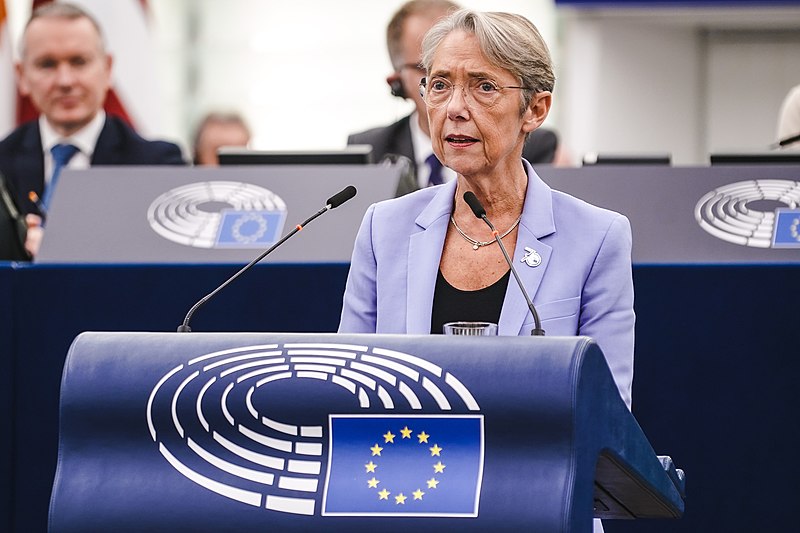The weeks-long government reshuffle derby in Paris is over. It is really interesting to see how President Emmanuel Macron did not want to over-communicate the process: the Élysée informed some editorial boards of the fact that Élisabeth Borne was to remain in office, then announced the changes in government portfolios in a simple statement.
Why is this interesting? Why was Paris so noisy about it? Because the usual way of doing this is for the Secretary General of the Élysée to step outside the Palace and read out the names – that’s how the Presidency gives the process weight. This time, of course, constitutionally speaking, there was no change of government. The President did not allow Prime Minister Borne to resign, so she did not have to be formally reappointed. Obviously, this is no accident either: the French press analyzed that the legitimacy of Borne was not renewed, she just stayed in place.
The Macron decision to keep Élisabeth Borne in place was a spectacularly difficult birth. Emmanuel Macron, as has happened to him before, procrastinated (and did not seem to be deliberately stalling in order to achieve some political end):
- One of the reasons for this weird ‘reappointment’ of Prime Minister Borne may have been that the President could not have found another, more effective PM. He could have chosen only a “politically more dangerous” one. It should be borne in mind that, although Borne has proved in recent months to be much more ‘political’ than many expected of her, she has a fundamentally technocratic image. The political boss is therefore undoubtedly the president – and presidents of the Republic do not like their prime ministers, or even their ministers, to be politically autonomous (“I decide, he ecexutes“, states a well-known Chirac classic addressed to former minister Nicolas Sarkozy to clarify the balance of power).
- However, Élisabeth Borne has proved to be relatively effective over the past year. While she has not been able to solve the impossible task (she has not been able to organize a majority in the National Assembly), she has been able to negotiate and brute force (with the infamous 49-3) a number of texts through the National Assembly. In other words, the Macron bloc was neither strengthened nor weakened, as the Prime Minister was able to show some ability to work within the given framework of minority government.
- In the meantime, the framework of minority government could be an important argument for Macron not to tamper with the Prime Minister’s person. As the 49-3 and the question of confidence could arise in the autumn in connection with the immigration law and other texts (e.g. the budget), Macron cannot be sure that he will not have to appoint someone else soon (perhaps after an early election). Why tire out a good name when they could be voted out of office in the autumn?
Of course, the explanation may be a notch simpler than all of the speculations and arguments above. President Macron could simply reason that if he had no new political message, he should not have a new person to communicate it either. And truth is, he had absolutely no new message this time.
(Image source and licence: European Parliament – Wikimedia Commons)



